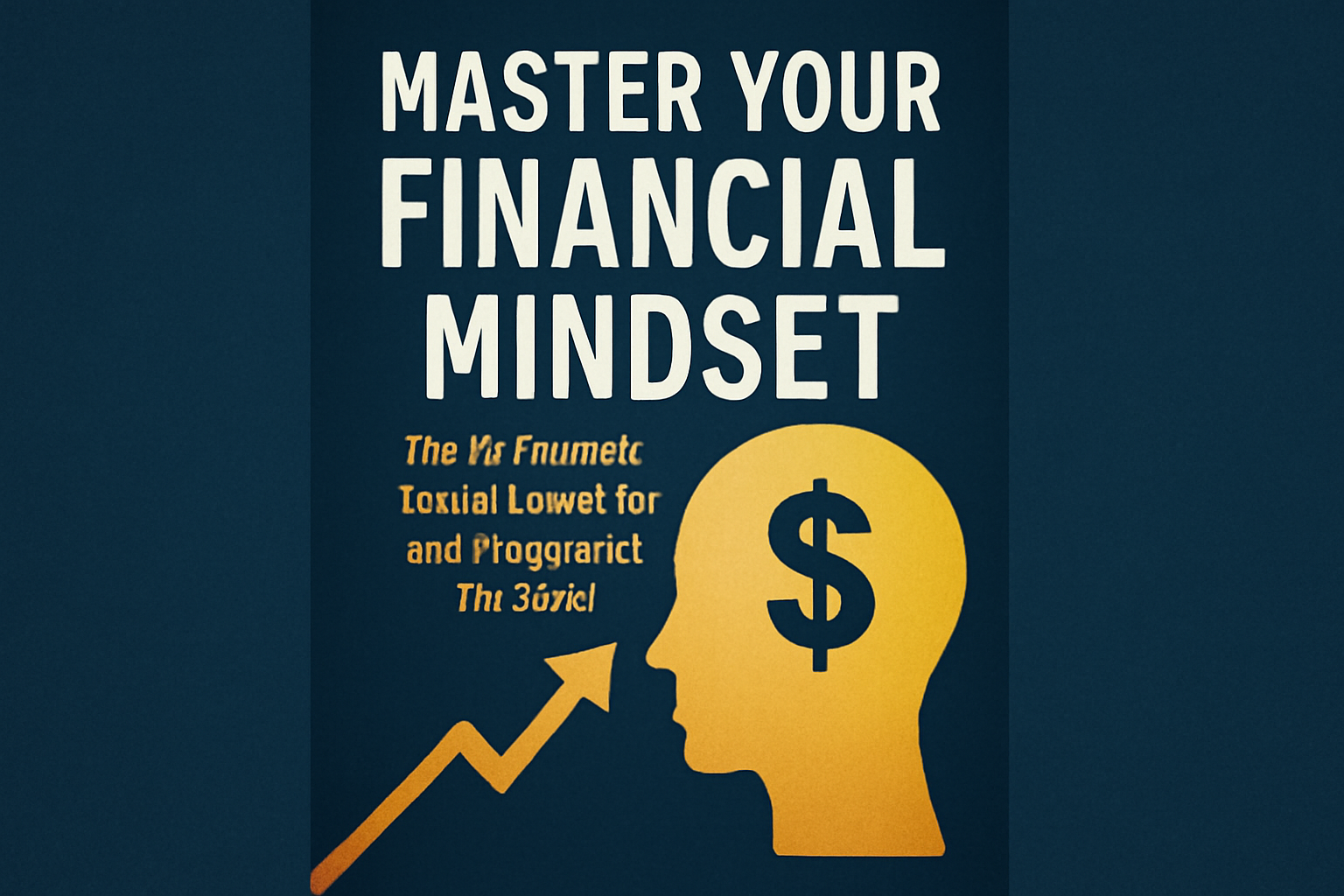Introduction: Why 2025 Is the Year You Can Achieve Financial Freedom
Achieving financial freedom is a common goal, but for many, it can seem out of reach. The truth is, financial freedom is not a far-off dream that only a select few can achieve. With the right strategies, mindset, and tools, anyone can start building wealth and make 2025 the year they take control of their financial future.
Whether you’re just starting your financial journey or looking to improve your current situation, this comprehensive guide will walk you through the tools, strategies, and insights you need to make 2025 your most financially successful year yet.
1. Define Your Financial Goals Clearly and Realistically
Before diving into any financial strategies, it’s essential to define your financial goals. Having clear, measurable objectives will help you stay focused and on track, especially as you encounter challenges along the way. Here’s how you can set your goals effectively:
- Be Specific: Vague goals like “I want to save more money” or “I want to be financially secure” are hard to measure and achieve. A better approach is to define specific, actionable goals such as, “I want to save $10,000 by the end of 2025 for a down payment on a house” or “I want to pay off my credit card debt of $5,000 by the end of the year.”
- Use the SMART Method: This is a powerful tool for goal setting. SMART stands for:
- Specific: Clearly define what you want to achieve.
- Measurable: Ensure you can track your progress.
- Achievable: Set goals that are realistic given your current circumstances.
- Relevant: Make sure your goal aligns with your long-term financial vision.
- Time-Bound: Set a deadline to keep you motivated.
Example Goal: “I want to save $5,000 by the end of the year for an emergency fund, saving $400 each month.”
By being clear about your goals and making them measurable, you increase the likelihood of successfully achieving them.
2. Build a Solid Budget and Control Your Expenses
Managing your finances starts with understanding where your money is going. Creating a solid budget is the foundation of financial success. Here are detailed steps to help you create and stick to a budget:
- Track Your Income and Expenses: Start by writing down all of your sources of income and your monthly expenses. Don’t forget irregular costs like annual subscriptions or seasonal expenses (e.g., vacations, holiday shopping). Use apps like Mint, YNAB (You Need A Budget), or a simple Google Spreadsheet to track your cash flow.
- Categorize Your Expenses: Break your expenses down into fixed (e.g., rent, utilities, car payments) and variable (e.g., groceries, entertainment, dining out). This will give you a better idea of where you can cut back.
- The 50/30/20 Rule: This budgeting rule suggests that:
- 50% of your income should go towards needs (essential expenses such as rent, utilities, groceries, etc.),
- 30% towards wants (non-essential expenses like entertainment, dining out, or shopping),
- 20% towards savings and debt repayment (putting money aside for emergency funds, retirement savings, and paying down debt).
- Cut Unnecessary Expenses: Take a hard look at your variable expenses and see where you can cut back. For example, can you reduce your dining-out expenses? Can you switch to a less expensive cable or streaming plan? Small changes can add up to significant savings.
- Automate Your Savings: Set up an automatic transfer to a savings account or investment account each time you get paid. This ensures that you are consistently saving without needing to think about it.
3. Smart Investment Strategies: Grow Your Money Wisely
Investing is one of the most effective ways to achieve financial freedom, but it’s important to do so wisely. The good news is, 2025 brings many investment opportunities that make it easier than ever to build wealth. Here’s how you can get started:
- Start Early: The earlier you start investing, the more time your money has to grow. Thanks to compound interest, even small investments can become significant over time.
- Diversify Your Portfolio: A diversified portfolio reduces risk and maximizes potential returns. Here are a few options to consider:
- Stocks: Consider investing in stocks of companies that are expected to perform well over time. While stocks can be volatile, they often offer higher returns than other asset classes.
- ETFs (Exchange-Traded Funds): ETFs allow you to invest in a diversified set of assets, such as stocks, bonds, or commodities, with a single investment. They’re perfect for beginners due to their low cost and inherent diversification.
- Real Estate Investment Trusts (REITs): If you’re looking for passive income, REITs offer a way to invest in real estate without having to own property directly. They pay dividends from rental income and property sales, making them a good option for steady income.
- Cryptocurrencies: While cryptocurrencies like Bitcoin and Ethereum are still relatively new, they’ve gained popularity due to their potential for significant returns. If you choose to invest in crypto, make sure to only invest what you can afford to lose, as the market can be volatile.
- Utilize Robo-Advisors: If you don’t have the time or expertise to manage your investments, consider using a robo-advisor. These automated platforms manage your portfolio for you, adjusting it based on your risk tolerance and financial goals.
4. Build an Emergency Fund: A Cushion for Financial Setbacks
Before you focus on high-risk investments, it’s essential to build an emergency fund. This fund acts as a financial cushion, ensuring that you won’t be forced to dip into your investments or go into debt in the event of unexpected expenses.
- How Much Should You Save? Financial experts recommend saving 3 to 6 months of living expenses in your emergency fund. This will give you peace of mind, knowing that you’re prepared for sudden job loss, medical expenses, or unexpected repairs.
- Where to Keep Your Emergency Fund: Keep this money in a high-yield savings account or a money market account so that it’s easily accessible but still earns some interest.
5. Stay Disciplined: The Power of Long-Term Thinking
The journey to financial freedom is not an overnight success — it’s a long-term commitment that requires discipline and patience.
- Stay Consistent with Contributions: The key to building wealth is consistent contributions. Whether it’s saving for retirement, building an emergency fund, or contributing to your investment accounts, make sure you’re setting aside money regularly.
- Avoid Emotional Decisions: In times of market volatility, it’s easy to panic and sell off investments or abandon your financial plan. Stay focused on your long-term goals, and avoid making emotional decisions. Successful investors understand that the market has ups and downs, and they stick with their strategy.
- Track Your Progress: Every few months, review your goals and assess your progress. Are you meeting your savings and investment targets? If not, adjust your approach. Financial plans should evolve as life changes, so stay flexible.
6. Seek Professional Advice When Necessary
While you can achieve a lot on your own, there are times when seeking professional financial advice can make a huge difference.
- Financial Advisors: A financial advisor can help you set up a comprehensive financial plan, optimize your investment portfolio, and provide guidance on things like tax planning and estate planning.
- Tax Professionals: A tax professional can help you maximize tax savings and ensure that you’re taking full advantage of deductions and credits available to you.
Conclusion: Make 2025 the Year You Achieve Financial Freedom
Financial freedom is within your reach, but it requires effort, discipline, and the right tools. By setting clear goals, building a solid budget, investing intelligently, and staying consistent, you can make 2025 the year you take control of your finances and achieve your financial goals.
Start implementing these strategies today, and by the end of 2025, you’ll have a solid foundation for a prosperous financial future. The sooner you begin, the more successful your journey to financial freedom will be.
Call to Action:
Want more financial tips? Subscribe to our newsletter for exclusive content, investment strategies, and actionable steps to achieve your financial goals in 2025.





Leave a Reply